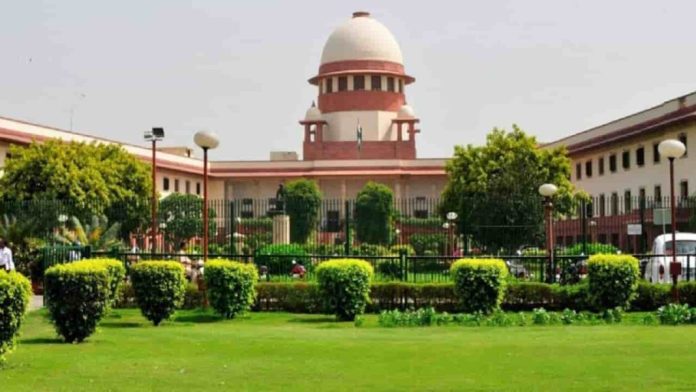The Supreme Court has observed that if every criticism or protest of the actions of the State was to be held as an offence under Section 153-A, democracy, which was an essential feature of the Constitution, would not survive.
The Bench of Justice Abhay S Oka and Justice Ujjal Bhuyan on Thursday quashed a criminal case lodged against Javed Ahmad Hajam, a Kashmiri Muslim professor working in a Kolhapur college in Maharashtra, for putting out a WhatsApp status in a group terming ‘August 5 -Black Day for Jammu and Kashmir’ and celebrating the Independence Day of Pakistan on August 14.
The Bench further set aside the Bombay High Court judgment of April 10, 2023 on the grounds that describing August 5 as a Black Day was an expression of protest and anguish.
It was an expression of an individual’s view and his reaction to the abrogation of Article 370 of the Constitution. It did not reflect any intention to do something prohibited under Section 153-A.
The Apex Court said this could be termed as a protest, a part of the appellant’s freedom of speech and expression guaranteed by Article 19(1)(a). Every citizen of India has a right to be critical of the action of abrogation of Article 370 and the change of status of Jammu and Kashmir.
On August 5, 2019, the Central government abrogated Article 370, stripping of the special status of Jammu and Kashmir.
The Bench observed that to extend independence day greetings to the people of Pakistan was a goodwill gesture and cannot be said to create disharmony or feelings of enmity, hatred or ill-will between different religious groups just because the person doing it belonged to particular religion.
The test to be applied in such cases was not the effect of the words on some individuals with weak minds who see a danger in every hostile point of view. The test was of the general impact of the utterances on reasonable people who were significant in numbers, it added.
It said merely because a few individuals may develop hatred or ill will will not be sufficient to attract clause (a) of sub-section (1) of Section 153-A of IPC, adding that the right to dissent in a lawful manner must be treated as part of the right to lead a dignified and meaningful life guaranteed by Article 21 of the Constitution.
However, the protest or dissent must be within four corners of the modes permissible in a democratic set-up. It was subject to reasonable restrictions imposed in accordance with clause (2) of Article 19. In the present case, the appellant has not at all crossed the line.
Now the time has come to enlighten and educate the police machinery on the concept of freedom of speech and expression guaranteed by Article 19(1)(a) of the Constitution and the extent of reasonable restraint on their free speech and expression. They must be sensitised about the democratic values enshrined in the Constitution, ruled the Bench.
It said on a plain reading, the appellant intended to criticise the action of the abrogation of Article 370 of the Constitution of India. He expressed unhappiness over the said act of abrogation. Those words did not refer to any religion, race, place of birth, residence, language, caste or community. It was a simple protest by the appellant against the decision to abrogate Article 370 of the Constitution and the further steps taken based on that decision.
The Constitution of India, under Article 19(1)(a), guarantees freedom of speech and expression. Under the said guarantee, every citizen has the right to offer criticism of the action of abrogation of Article 370 or, for that matter, every decision of the State. He has the right to say he was unhappy with any decision of the State, added the Bench.
It cannot be said that such acts would tend to create disharmony or feelings of enmity, hatred or ill-will between different religious groups. Motives cannot be attributed to the appellant only because he belonged to a particular religion.
The Apex Court held clause (b) of sub-section (1) of Section 153-A of the IPC will not be attracted as what was depicted on the WhatsApp status of the appellant cannot be said to be prejudicial to the maintenance of harmony among various groups.
Thus, the continuation of the prosecution of the appellant for the offence punishable under Section 153-A of the IPC would be a gross abuse of the process of law.
The Bombay High Court had earlier dismissed the appellant’s plea to quash the FIR, saying the possibility of stirring up the emotions of a group of people cannot be ruled out.


